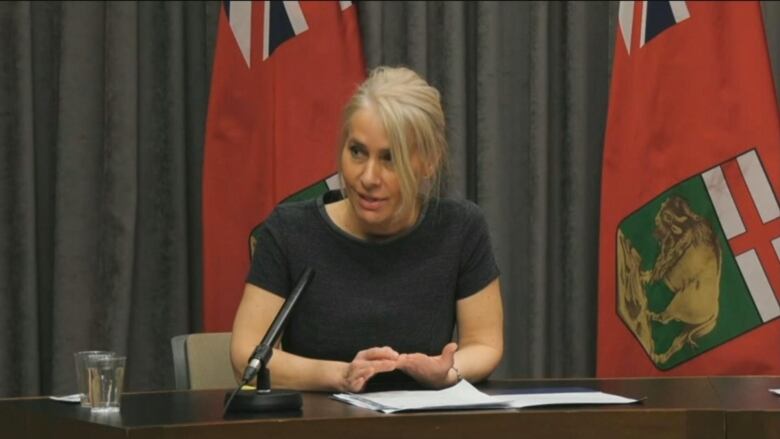Non-essential diagnostic testing to be postponed as part of Manitoba's COVID-19 response
Decision made to protect patients, health-care workers: chief nursing officer

The province is putting non-essential and routine diagnostic testing on hold as part of its response to the COVID-19 pandemic, public health officials said Tuesday.
This includeslaboratory, imaging and non-invasive cardiac services.
Urgent diagnostic testing, including tests and procedures required for immediate care management, will continue, said Lanette Siragusa, chief nursing officer for Manitoba Shared Health.
Patients will be contacted if their appointment is affected and cancelled appointments will be rescheduled as soon as possible, she said.
The decision was made to further protect patients and health-care staff from possible exposure to COVID-19, Siragusa said.
If your symptoms change or worsen, you should contact your doctor immediately, she said.
"That doesn't mean that that's a hard stop rule.If people need to be reevaluated, then we can certainly do that," Siragusa said.
There are now 21 confirmed and probablecases of the coronavirus in Manitoba. The newest case is aWinnipeg man in his 40s,chief provincial public health officer Dr. Brent Roussinsaid Tuesday.
An investigation is underway to determine whether this latest case is related to travel, he said.
Public health officials previously announced some elective surgerieswill be delayed as part of its response to the coronavirus. That helpsto reducethe risk of exposure to COVID-19 for patients and health care staff, and frees up health care workers to respond to COVID-19 cases if needed.
Hospitals will still continue with scheduled surgeries that cannot be delayed, such as for cancer and trauma.
Time-sensitive orthopedic, obstetrical, gynecological, and ophthalmologicalsurgeries will also continue.












_(720p).jpg)


 OFFICIAL HD MUSIC VIDEO.jpg)
.jpg)



























































































